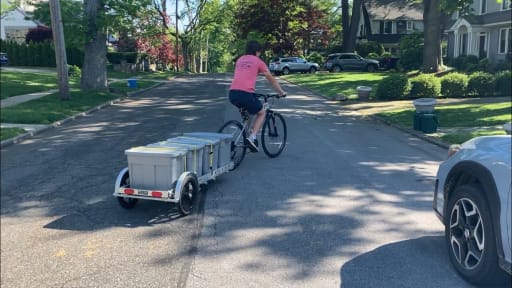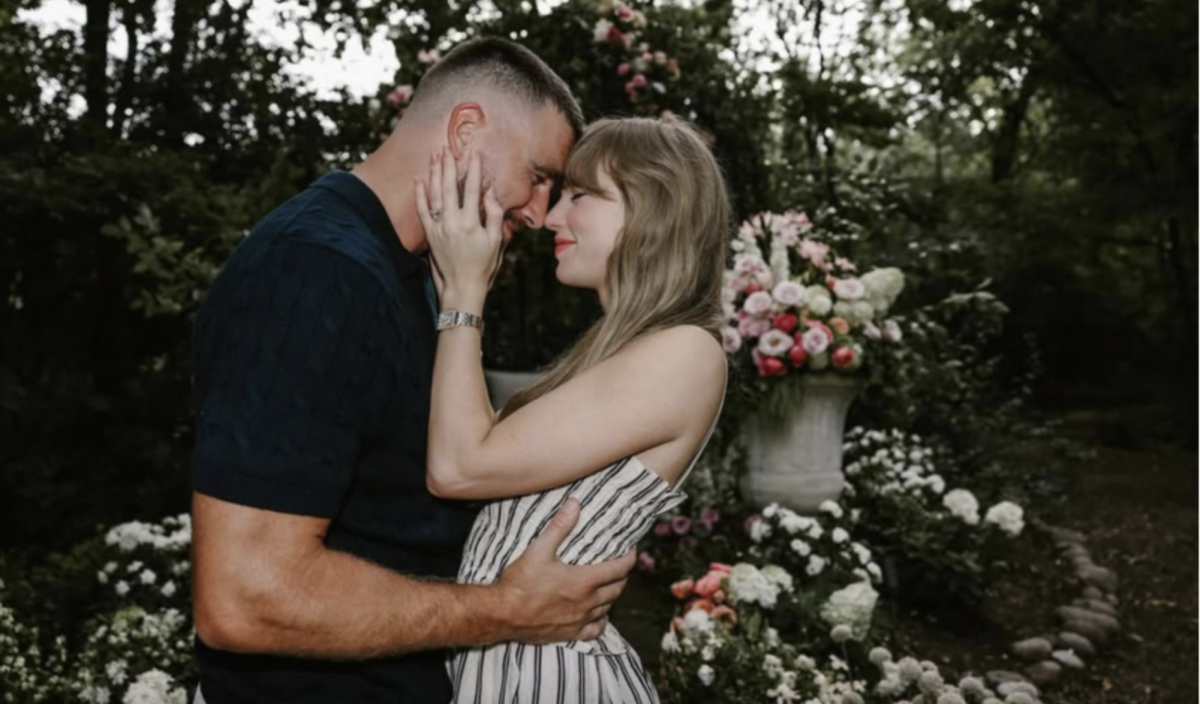Application is Everything: Why We Must Start Learning Beyond Our Classroom Walls
In our grade-obsessed student culture, MHS students must take traditional learning and realize its applications to the real world.

Photo Courtesy mamkschools.org
Original Civic Research & Action students encourage residents to lower their environmental footprint by making it easy for them to recycle their food scraps by picking them up on bike.
November 5, 2021
According to the district website, the mission of the Mamaroneck School District is “to promote an appreciation of learning as an inherently rewarding activity and to prepare students to function as responsible citizens in a multicultural world.” It’s a worthy goal-to transform children into curious individuals ready to enter broader society. Yet, many students will tell you that on a typical day, they find that their classes fall far short of intellectually engaging.
The idealized notion that education, especially high school, is a transformative experience meant to develop a budding mind is blurred by the restrictions of the monotonous classroom setting and the grade-centered culture amongst students. It is essential that students begin to recognize the application of content to the real world to reach the ultimate mission of Mamaroneck education.
On the surface, school appears largely disconnected from the world beyond campus. We ingest formulas, memorize vocab, and spit out recollections of historical events, not because we believe it is an “inherently rewarding activity,” but because we want rewards. We want good grades and, in turn, happy parents, admission to a good college, and a ‘successful’ life. “When the students are focused more on grades than on learning,” remarks Regents and AP Physics teacher Dr. Elena Fillippova, “it definitely shifts their priorities and goals.” Filippova teaches what is widely regarded as one of the most difficult subjects at MHS, but also one of the most fundamental subjects for understanding the mechanics of our world.
As a former physics student, I never really enjoyed the subject. In fact, I found it to be difficult, frustrating, and unnecessarily nuanced. That is, until I noticed that physics can explain how bridges don’t collapse or explain why music appeals to our ears. The most valuable part of physics did not come from taking detailed notes but from the application of those notes to outside observations. For Filippova, “real-life applications make everything more meaningful,” and so she tries to discuss them as much as possible within her class. Memorizing formulas may get her students the grades but Fillipova’s application of those formulas aims to give her students reason to learn those formulas. Even so, however, it is ultimately in the students’ hands to digest those reasons.
Allison Hecht (‘22), another former student of Flippova’s, comments how “the best teachers try to make the content feel applicable, but it’s also partly the student’s role to be open to learning new things and making connections.” For example, Hannah Clark (‘23) made use of similar real-life hard-science examples in her chemistry class when her teacher, Carmen Yonkler, assigned her a project in the kitchen. After completing the project, applying her knowledge of basic compounds to cooking, she became “much more interested in the subject, and was able to “absorb the information [she] learned better.”
The idea of applying class content extends beyond the sciences as well. Joe Liberti, the AP Government & Politics teacher and founder of the Original Civics Research and Action Program (OCRA), similarly encourages the application of his civic content to make it hold weight. “I don’t think it’s possible to become an engaged citizen solely within a traditional classroom setting,” he explains. “You wouldn’t expect soccer players to play the game well by keeping them in a classroom for 12 years. Thus, why would you expect students to be fluent in the skills and knowledge of civic life without real-life practice?” His ‘real-life’ practice comes in the form of community-based projects conducted by students in his OCRA program, which aim to address local issues through local solutions.
Frances McDowell (‘22), a student in both Liberti’s AP Government and OCRA classes, explains how her engagement in OCRA has taught her that “making progress is not a glamorous thing” like it is sometimes portrayed to be in textbooks and movies. “It’s less about having something great to say or a cohesive plan, and more about getting on calls, responding to emails and letting people know that you’re present and that you’re listening,” she explains. Her involvement in OCRA has given her a fundamental understanding of why the broader topics that she learns about in AP Gov are so important, and how to use her understanding of those topics to become an engaged citizen.
Without understanding application, the material taught in classrooms can never fully “prepare students to function as responsible citizens in a multicultural world.” While teachers continue to ensure that their classrooms are constantly engaging with the world beyond their walls, students must reframe their minds to make connections extending beyond class material. It is time to recognize the value of education beyond a numerical average and re-center our focus around actual learning.






